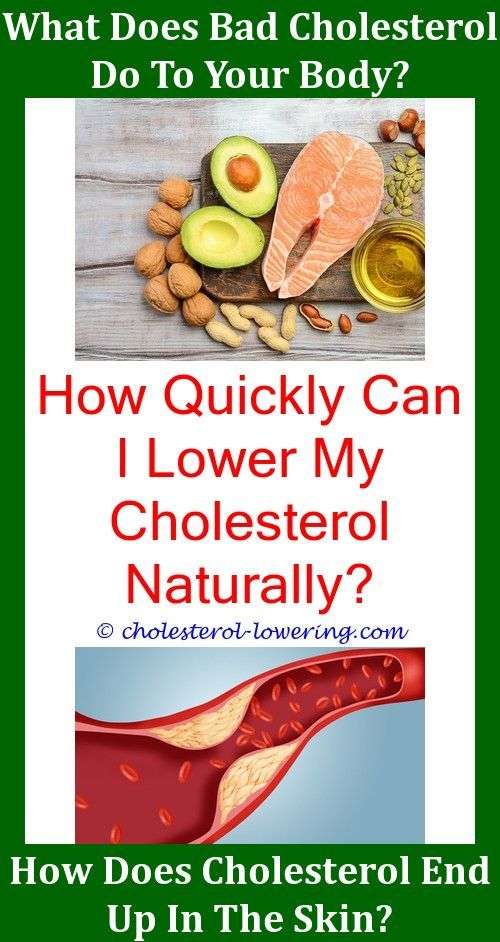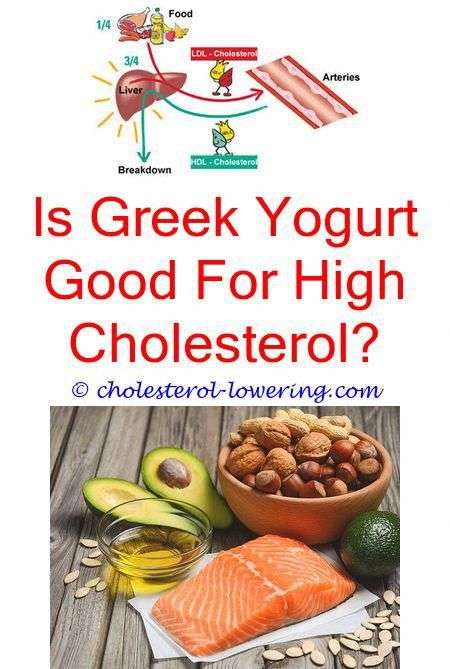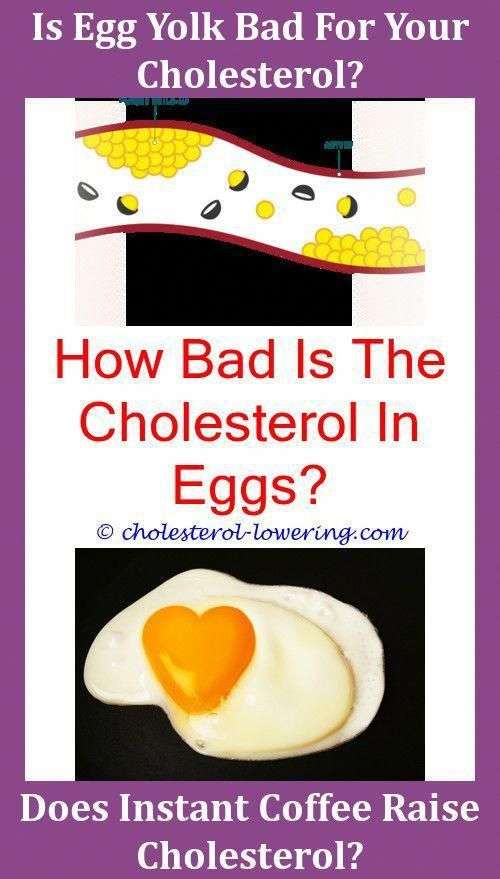How Much Is Too Much Saturated Fats
Most foods you choose should contain no more than 2 grams of saturated fat per serving. To help lower your LDL cholesterol, no more than 5 to 6 percent of your daily calorie intake should come from saturated fats. Use the list below to figure out the maximum amount of saturated fat you can have each day.
- Daily Calories:1,200
- Daily Saturated Fat Limit : 7-8g
Cholesterol And Healthy Eating
What we eat has an impact on our cholesterol levels and can help reduce our risk of disease. Try to eat a wide variety of foods from each of the five food groups. Not only does this help to maintain a healthy and interesting diet, but it provides essential nutrients to the body.
The Heart Foundation recommends:
- Plenty of vegetables, fruits and wholegrains.
- A variety of healthy protein sources , legumes , nuts and seeds. Smaller amounts of eggs and lean poultry can also be included in a heart healthy diet. If choosing red meat, make sure it is lean and limit to 1-3 times a week.
- Unflavoured milk, yoghurt and cheese. Those with high blood cholesterol should choose reduced fat varieties.
- Healthy fat choices nuts, seeds, avocados, olives and their oils for cooking
- Herbs and spices to flavour foods, instead of adding salt.
Also, be mindful on how much you are eating and whether you are filling up on unhealthy foods. Portion sizes have increased over time and many of us are eating more than we need which can lead to obesity and increase our risk of cardiovascular disease.
Ideally, a healthy plate would include servings of ¼ protein, ¼ carbohydrates and ½ vegetables.
Serving size can vary depending on age, gender and specific nutrition needs.
How Can Foods Help Lower Cholesterol
People can often reduce their cholesterol levels dramatically by changing the foods they eat. Diets high in saturated fats, trans fats, and cholesterolfound in meat, dairy products, and eggsraise cholesterol levels, which increases heart attack risk. Foods high in saturated fat are especially dangerous because they can trigger the body to produce extra cholesterol.
Plants do the opposite. They are very low in saturated fat and free of cholesterol. Plants are also rich in soluble fiber, which helps lower cholesterol. Soluble fiber slows the absorption of cholesterol and reduces the amount of cholesterol the liver produces. Oatmeal, barley, beans, and some fruits and vegetables are all good sources of soluble fiber.
It is important to continue to work closely with your health care provider to monitor your health and manage medications, even as you make dietary changes.
Read Also: Pork Chop Cholesterol
Our Dietitian Heather Gives You The Lowdown On Vegan Diets And Cholesterol For National Cholesterol Month
This year, the theme of HEART UKs National Cholesterol Month is Lets Talk About Cholesterol. This got me thinking about how vegans might be affected by issues relating to cholesterol and heart health. Its also a great opportunity to introduce some new resources geared towards people with high cholesterol.
Why Is Cholesterol Important

Your liver makes cholesterol, a fatty substance which is found in the membranes of every cell in your body. It is used to make vitamin D, hormones and bile, which helps you to digest fats.
Its normal to have cholesterol in your blood but a high level increases the risk of heart attacks and strokes. According to HEART UK, half of UK adults have raised cholesterol. Lifestyle changes can help people to lower and maintain their cholesterol levels.
Don’t Miss: How Long To Fast Before Cholesterol Panel
What Raises The Risk Of High Cholesterol
Beyond diet, there are a number of lifestyle factors that can contribute to high cholesterol levels. Smoking is known to lower good cholesterol levels and also damages your arteries and blood vessels, raisin the risk of plaque buildup. Those who are more sedentary may also have a greater risk of having high cholesterol.
Your risk can also be affected by your family history. Those with a family history of heart disease may need to take extra care in monitoring their cholesterol ratio because arteries harden with plaque buildup, meaning the body needs to work harder to pump blood. Diabetics may also have a greater risk, as their LDL particles tend to stick to arteries. Glucose also attaches to lippoproteins, which remains in the bloodstream longer and may lead to the formation of plaque.
Fiction: Heart Disease Is Often Caused By Eating Too Much Cholesterol
Fact: As we mentioned, many factors play a role in heart disease, including genetics, inflammation, high blood pressure, and smoking. So why have foods with cholesterol been somewhat villainized?
“Diet culture often points a finger to food, elevating some foods and demonizing others,” Fine says.
Plus, the cholesterol conversation gets even more confusing when you look at the similar structure of dietary cholesterol and the cholesterol made in the liver, adds Ashley Reaver, RD, an Oakland, Calif.-based registered dietitian and the creator of the Lower Cholesterol Longer Life Method.
“Cholesterol found in foods is similar to the cholesterol produced in our bodies. It is only found in animal products, as plants cannot produce it. We are able to absorb cholesterol from the digestive tract, but only about 10 percent of the dietary cholesterol we eat gets absorbed and impacts our blood cholesterol,” Reaver says.
The cholesterol in our blood is produced in our liver from any calorie-containing food anything that includes protein, carbohydrates, fats, or alcohol and is packaged with protein and triglycerides, the primary type of fat in our foods and our body. Hence the name “lipo” “protein.”
You May Like: Shrimp And High Cholesterol
Dietary Tips To Avoid Cholesterol
The most important thing you can do to reduce your cholesterol level is to maintain a healthy lifestyle. You should try to:
- Increase the amount and variety of fresh fruit, vegetables and wholegrain foods you have each day.
- Choose low or reduced-fat milk, yoghurt and other dairy products or have added calcium soy drinks.
- Choose lean meat .
- Limit fatty meats, including sausages and salami, and choose leaner sandwich meats like turkey breast or cooked lean chicken.
- Have fish at least twice a week.
- Replace butter and dairy blends with polyunsaturated margarines.
- Include foods in your diet that are rich in soluble fibre and healthy fats, such as nuts, legumes and seeds.
- Limit cheese and ice cream to twice a week.
Other storage fats that are transported in blood lipoproteins include triglycerides. When present in high concentrations in the blood, this fat is also a risk for heart attack. Some foods will affect the cholesterol level or the triglyceride level and some will affect both.
Oats Barley And Other Whole Grains
Oats, or whole grain, oat-based cereal like One Degree Organics Sprouted Oat Os or Cascadian Farms Purely Os, which is made from oats and barley, can help get your cholesterol levels where theyre supposed to be. Try having steelcut or overnight oatmeal for breakfast or use rolled oats to make vegan pancakes and healthy baked treats like plant-based muffins or oatmeal breakfast cookies.
You can also incorporate more whole grains into your diet by swapping enriched pasta and bread for whole wheat, like Bionature Whole Wheat Spaghetti or Daves Killer Bread.
Don’t Miss: Does Tuna Have Good Or Bad Cholesterol
Can Vegan Diets Help To Protect Heart Health
Guidelines about heart-healthy eating tend to encourage the consumption of fruit, vegetables, wholegrains, beans, peas, lentils and nuts. People are also encouraged to replace saturated fats with plant-derived unsaturated fats, such as peanuts, nuts, seeds, avocado and small amounts of vegetable and olive oils and vegetable spreads. Vegan diets make the most room for these plant foods and research suggests that this way of eating can help people to consume more beneficial fibre and limit saturated fat, as well as eating plenty of fruit and vegetables.
The authors of the EPIC-Oxford study found that vegans had lower cholesterol levels compared with people eating omnivorous diets. They concluded that the vegans may have been benefiting from differences in both diet and body mass index, which is a measure of how your weight compares to the healthy range for your height.
Do I Need To Cut Down On Dietary Cholesterol
Most people dont need to cut down on the cholesterol thats found in foods- so you can still enjoy eggs and shellfish.
Its much more important to cut down on foods which contain saturated fats. Thats because saturated fats affect how the liver handles cholesterol. So, eating saturated fats can raise your blood cholesterol. Try to replace saturated fats with unsaturated fats which are better for your heart.
For some people those with familial hypercholesterolaemia , those who have high cholesterol, and those who are at high risk of or have cardiovascular disease the recommendation is to limit cholesterol in food to no more than 300mg a day. In the case of FH, ideally less than 200 mg a day.
Even though dietary cholesterol only has a small effect on blood cholesterol, people with high cholesterol and FH already have high levels of blood cholesterol, so it seems sensible not to eat too much cholesterol in food.
Don’t Miss: Is Shrimp Bad For Your Cholesterol
What Are Trans Fatty Acids
Trans fatty acids are formed when a liquid fat is changed into a solid fat through a process called hydrogenation. Many manufacturers use hydrogenated fats in their ingredients because it creates a product with an extended shelf life and better consistency.
Trans fatty acids are especially bad for you. They raise the levels of LDL cholesterol in your blood and lower the levels of high-density lipoprotein cholesterol.
There are currently no safe levels of trans fat to consume each day, so avoid them completely or eat them as little as possible.
Many manufacturers have stopped using or greatly reduced the amount of trans fats in their foods. But, check the label and avoid:
What Is Insoluble Fiber

Insoluble fiber is generally referred to as “roughage.” Insoluble fiber promotes regularity, adds bulk and softness to stools, helps with weight regulation and helps prevent many gastrointestinal disorders. Good sources on insoluble fiber include:
- Wheat bran and whole wheat or grain bread/bread products, pasta, cereal and crackers.
- Vegetables.
- Nuts.
You May Like: Does Egg Beaters Have Cholesterol
Is Cholesterol Only From Animal Products
Cholesterol is a type of lipid, just as fats are. However, unlike fat, cholesterol can’t be exercised off, sweated out or burned for energy. It is found only in animal products, including meat, chicken, fish, eggs, organ meats and high-fat dairy products.
Subsequently, one may also ask, can Vegans have high cholesterol?
A vegan diet significantly reduces saturated fat intake. Since saturated fat may be a contributing factor to higher LDL cholesterol levels, a person who eats a vegan diet is reducing some risk of high cholesterol.
Furthermore, why is my cholesterol high if I am a vegetarian? Even though a vegetarian diet eliminates animal foods as a source of saturated fat, if you have high cholesterol, you’ll still need to watch out for sources of fat and cooking methods that can affect your cholesterol levels. Avoid trans fats. Many vegetable oils have hydrogen added to them.
Similarly, it is asked, does saturated fat only come from animals?
Saturated fats occur naturally in many foods. The majority come mainly from animal sources, including meat and dairy products.
Can you get cholesterol from plants?
Cholesterol is only found in foods that come from animals, there is no cholesterol in foods that come from plants. So, there is no cholesterol in fruit, vegetables, grains, seeds, nuts, beans, peas and lentils.
You May Like Also
Which Foods Raise Ldl Cholesterol
Animal foods and products contain cholesterol, but its actually the types of fats in foods that can have a more dramatic effect on blood cholesterol levels.
A study from 2015 showed a decrease in saturated fats could lead to a small but potentially important reduction in cardiovascular risk.
The researchers also found evidence that when saturated fat is replaced with polyunsaturated fats, not carbohydrates, heart disease risk decreases.
Foods that are high in saturated fats encourage your liver to make more LDL bad cholesterol. You should limit these foods:
- full fat dairy products
- red meat, including beef, veal, lamb, and pork
- deli meats, sausage, bacon, and hot dogs
- baked goods
Don’t Miss: Does Feta Cheese Affect Cholesterol
The Truth About Saturated Fat Animal Protein And Cholesterol
There is much evidence linking heart disease and stroke to poor diets, including the high consumption of saturated animal fats, animal protein, salt and refined carbohydrates, and the low consumption of fruits and vegetables. A certain amount of cholesterol in the blood is essential for good health, but high cholesterol levels increase the risk of heart disease and stroke.
Contrary to popular belief, most of our cholesterol does not come from the diet but is produced within the body by the liver. Only a small amount of our cholesterol comes from the diet, and only if you eat animals foods. Cholesterol is found only in animal foods and is particularly concentrated in organ meats and eggs. Even high-fat plant foods , contain no cholesterol whatsoever, so a vegan diet is cholesterol-free. We have no actual dietary requirement for cholesterol, in other words we do not need to eat foods that contain it as the liver can make as much as we need. However, there is no mechanism limiting the amount of cholesterol produced by the liver and it can rise to unhealthy levels.
What causes high cholesterol production in the liver? The answer lies in the types of foods we eat: diets high in animal protein and saturated fat have been shown to increase cholesterol. The cholesterol-raising effect of saturated fat and the links with heart disease are well-documented. All major health organisations agree that saturated fat is a risk factor for heart disease.
Treatment For High Cholesterol
Making lifestyle changes, especially changing some of the foods you eat, and regular physical activity, are very important to help reduce high LDL cholesterol.
You may also need to take cholesterol-lowering medicines to help manage your cholesterol and reduce your risk of having a heart attack or stroke. Talk to your doctor about finding the most appropriate treatment for you.
You May Like: Are Grits Good For Your Cholesterol
What Are Saturated Fats
Saturated fats are generally solid or waxy at room temperature and are most often found in animal products and tropical oils. The following foods contain saturated fats:
- Fatty cuts of beef, pork, lamb, veal, and the skin of poultry.
- Hot dogs, bacon and high-fat luncheon meats, such as salami and bologna.
- Full fat and processed cheeses, cream cheese.
- High-fat dairy products, such as whole milk, cream, half and half, butter and sour cream.
- Lard, bacon fat, sauces and gravies made from animal fat.
- Most fried foods and fast foods.
- Tropical oils – palm, palm kernel and coconut.
- Baked goods made with lard, butter or tropical oils.
Effects Of High Cholesterol Levels
The liver is the main processing centre for cholesterol and dietary fat. When we eat animal fats, the liver transports the fat, together with cholesterol in the form of lipoproteins, into our bloodstream.
Too much cholesterol circulating within LDL in our bloodstream leads to fatty deposits developing in the arteries. This causes the vessels to narrow and they can eventually become blocked. This can lead to heart disease and stroke.
Don’t Miss: How Much Cholesterol In Pork Chops
Food Intake And Circulating Lipids
Self-reported intakes of animal source food categories were associated with measured levels of TC, LDL, HDL and TG, as well as with the PC, LPC, PE, PL, SM and CER lipid classes . Daily intake of game meat was positively associated with TC and HDL and non-game meat negatively associated with TC and TG . Significant correlations were observed between game meat intake and PCs , PEs and in particular PE-pls . Also, fish intake was associated with PEs and PE-pls . Consumption of milk products was negatively associated with levels of LPCs, PEs and PE-pls .
Medication May Be Needed

For some people, diet and lifestyle changes are not enough. High blood cholesterol levels often have a genetic component. Some people inherit altered genes that cause high cholesterol and this cannot usually be changed sufficiently by lifestyle or diet.
If you are at risk of coronary heart disease and your LDL cholesterol level doesnt drop after scrupulous attention to diet, your doctor may recommend medications to force your blood LDL levels down. Cell cholesterol levels, however, remain normal, so lowering blood cholesterol has no effect on most cell metabolic processes.
Some people get muscle aches from statins, which are the most commonly used medication to lower blood cholesterol. However, diet and exercise will still be important, even if you are taking medication. Your doctor may also refer you to a specialist who treats cardiovascular disease.
Read Also: What Foods Are Good For A Low Cholesterol Diet
Fiction: It’s Best To Stick To Egg Whites Only
Fact:“Organic and pasture-raised eggs are a complete protein source and rich in numerous vitamins and minerals,” Stewart says.
Egg whites offer some protein . But egg yolk contain almost all of an egg’s nutrition, including most of its iron, biotin, folate and vitamins like A, D, E, K, plus about four grams of protein.
One game-changing 2013 study compared the blood cholesterol impact of eating whole eggs or an equal amount of a yolk-free egg substitute. After three months, those who ate three whole eggs per day had a larger increase in HDL and greater decrease in LDL than their egg substitute-consuming peers.
Related Content: